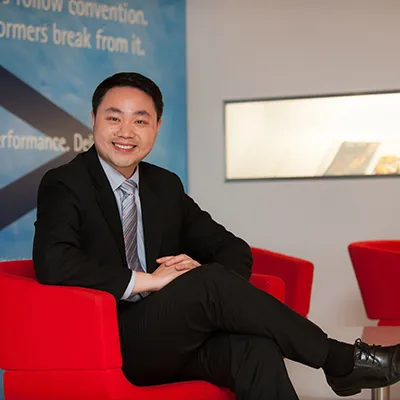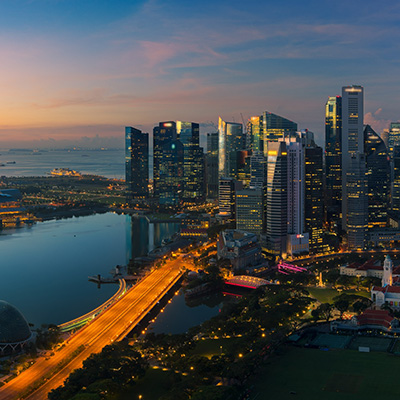Tech start-ups based in Singapore raised $11.2 billion in the first nine months of 2021 - more than double the $5.5 billion booked for the whole of 2020.
This healthy sign of recovery in Singapore's start-up ecosystem comes as the Republic remained the top investment destination in South-east Asia and generated more than half the total deal quantum across the region for the first three quarters of the year.
These figures were shared by Enterprise Singapore (ESG) chairman Peter Ong at the finals of Slingshot, the government agency's start-up pitching competition, on Wednesday (Nov 10).
The event is part of the Singapore Week of Innovation and Technology, which is held in conjunction with the Singapore Fintech Festival until Friday.
Mr Ong also said 10 of the 21 unicorns that have emerged in Asean in 2021 are based in Singapore - almost the same number of such billion-dollar-valued start-ups produced in Singapore over the past seven years.
"Collectively, these unicorns have also created thousands of good jobs and are enmeshed in Singapore's innovation and start-up ecosystem," he said.
Start-up ecosystems globally have been gathering momentum this year, Mr Ong added, noting how about US$288 billion (S$388 billion) in global venture capital funding was invested in the first half of 2021, almost twice the investment in the same period in 2020.
He highlighted how the Republic has built a vibrant start-up ecosystem conducive for firms to grow.
Start-ups in Singapore today have access to more than 200 accelerators, up from 120 such enablers five years ago. The number of early-stage venture capital firms here have also increased from about 130 in 2016 to close to 180 today.
Singapore must continue to strengthen its four key pillars - talent, financing, demand-led innovation and networks - to help start-ups capture new opportunities within Asia and the world, Mr Ong said.
"While we have covered some distance despite the pandemic, we cannot rest on our laurels. The global winds of change are blowing fast and we must keep improving to stay ahead of trends."
The first big opportunity Singapore must seize is to strengthen its networks with partners and links abroad, he noted, adding that the country will press on with its Global Innovation Alliance network and co-innovation programme efforts.
These would allow start-ups to capitalise on overseas opportunities and build links to international innovation hubs, Mr Ong said.
It also needs to capture talent, especially as time is a priceless currency for start-ups, he added. Under the Global Tech Talent Alliance programme, firms here are able to tap service providers that can help them build and manage tech talent remotely and navigate local regulations to facilitate market expansion.
This programme has kicked off in Vietnam, and ESG hopes to expand it to more markets in the future to help early-stage start-ups that need to scale overseas.
"Our Singapore-based start-ups must seize this chance to look overseas, make important networks to find your success," said Mr Ong.
"Likewise, I invite global start-ups to consider the opportunities here, and use Singapore as a base to springboard to new opportunities within Asia."
The winner of the fifth edition of Slingshot was crowned on Wednesday, with United States-headquartered biotech firm QuantumCyte beating 11 other start-ups to earn a $250,000 Startup SG grant and 18 months of rent-free work space in JTC's Launchpad. The other finalists were each awarded a $50,000 grant.
Over 4,500 applications from more than 150 markets, including innovation hubs like China and the United States as well as emerging markets such as Costa Rica and Latvia, were submitted for this year's competition.
QuantumCyte, which has developed an artificial intelligence-integrated tissue dissection solution that provides more accurate test results for cancer patients, is currently in discussions with government agencies and institutes of higher learning in Singapore on possible partnerships.
Ms Lynda Low, vice-president for Asia-Pacific and general manager for Asean at QuantumCyte, said: "After this award, we're really going to start thinking about how to go out there and engage regionally, like in China and South-east Asia, where we see a lot of opportunities.
"Wherever cancer incidences are high, we believe that's where we can make the biggest impact."
Source: The Straits Times © SPH Media Limited. Permission required for reproduction.







